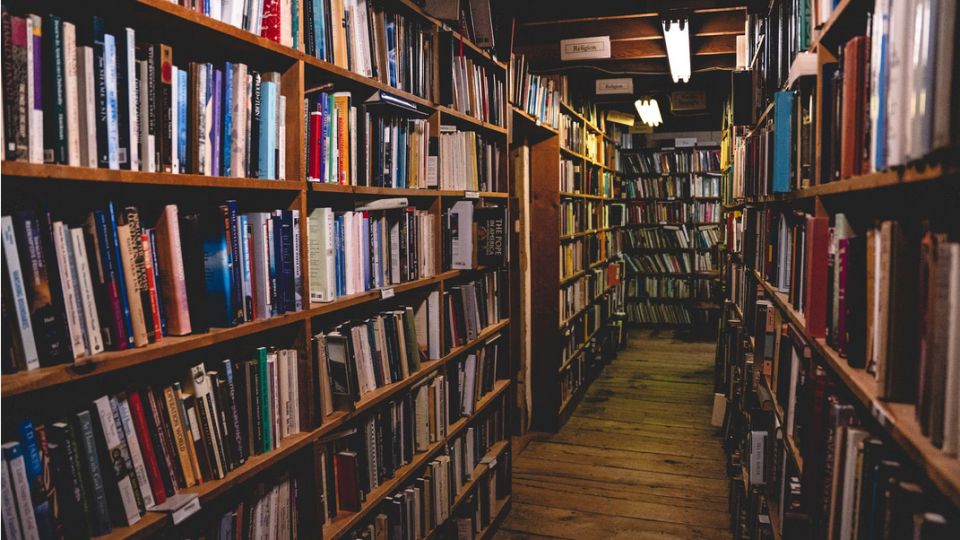May 13, 2024
MANILA – My single favorite thing about moving to Cambridge, Massachusetts, for graduate school is living within a 10-minute walk from a great bookstore. Three bookstores, if you expand the radius by half a mile. On rough days, I console myself by marching up to the ever-enticing displays of my neighborhood bookshop. The covers are an invitation.
This ritual is a luxury compared to what a trip to a bookstore entails back home in Manila: An hour’s car ride through the city’s weekday traffic (considered the world’s worst in 2023) to access a Fully Booked branch that allows me to browse through its shelves. And even in Manila’s biggest bookstores, the selection can be narrow and outdated.
On a trip home in December, I noted that topselling titles had changed little in years. Bookstores may struggle to navigate government regulations that ranked 95th out of 190 in the global ease of doing business in 2020. This is par for the course in a country with one of the highest learning poverty in East Asia and the Pacific, being second only to Laos. A 2023 World Bank report found that over nine in 10 Filipinos can’t read a simple text by age 10. The Philippines is also among the five worst global performers in science, according to the 2022 Programme for International Student Assessment results, and is at the bottom 10 of 81 countries in reading comprehension and mathematics. This dismal education performance worsened during the pandemic as Philippine schools had some of the longest shutdowns in the world.
In a country strewn with shopping malls, good bookstores are few and far between. Bookstores account for a dwindling share of the monolithic megamall floor space. The two main book chains, National Bookstore and Fully Booked, have downsized and permanently shuttered some branches even prior to the pandemic. Libraries are similarly inaccessible. A 2023 National Book Development Board (NBDB) survey found that 82 percent of adult respondents were not aware of a library in their locality. In 2022, there were 1,622 public libraries to service the country’s then 112.5 million people, about 76 percent of the number of libraries that exist in Thailand, whose population is much smaller. The selection on offer is likewise restrictive.
Of Fully Booked’s top five online bestsellers for teens and adults—a selection that included Atomic Habits by James Clear and Emma by Jane Austen—the latest release was from 2019. The Holy Bible was the highest ranking nonschool-related read cited in the NBDB’s 2017 readership survey. The favorite authors mentioned were J.K. Rowling, William Shakespeare, Sidney Sheldon, and Nicholas Sparks. In sharp contrast, the window display of my local Cambridge bookstore changes weekly.
Limited literary offerings curb the country’s future growth. Research in the Journal of Global Health finds that access to at least one book at home nearly doubles the probability that a child is on track in literacy and numeracy. Self-directed reading for pleasure has been linked to stronger academic performance in English, mathematics, science, and history. Fundamental to this process is what a Scholastic education report calls “wide reading driven by access to abundant books and personal choice.”
Since academic performance has a significant impact on children’s later economic status, an investment in their reading life is an investment in their future. Calls to expand access to nonschool-related reading should be seen as a vital investment in the country’s education infrastructure.
The Philippines should look to neighboring Vietnam as an example. A key component of Vietnam’s continued economic expansion has been its heavy investment in its education system. The secret of Vietnamese students’ stellar school performance lies in Vietnam’s high cultural regard for the value of education, home environments conducive to learning, and well-trained teachers. All of these require a society’s investment in literacy and a deeper appreciation for books.
The Philippines has already taken a few steps in the right direction. Efforts by the NBDB to foster local book publishing and set up reading nooks are expanding book accessibility and interest. But the government should do more to ensure Filipinos’ access to a rich literary diet. It should invest in more public libraries, host traveling book fairs with subsidized titles, and lean in to lending electronic copies. Failure to act means accepting our students’ dismal performance in international education assessments, and conceding that a rich reading life is a luxury reserved for the wealthy.
Bookstores are a testament to the height of human achievement and potential. They offer spaces for wonder, discovery, and growth.
Monica Melchor is a graduating student taking up Masters in Public Administration in International Development at the Harvard Kennedy School of Government.


